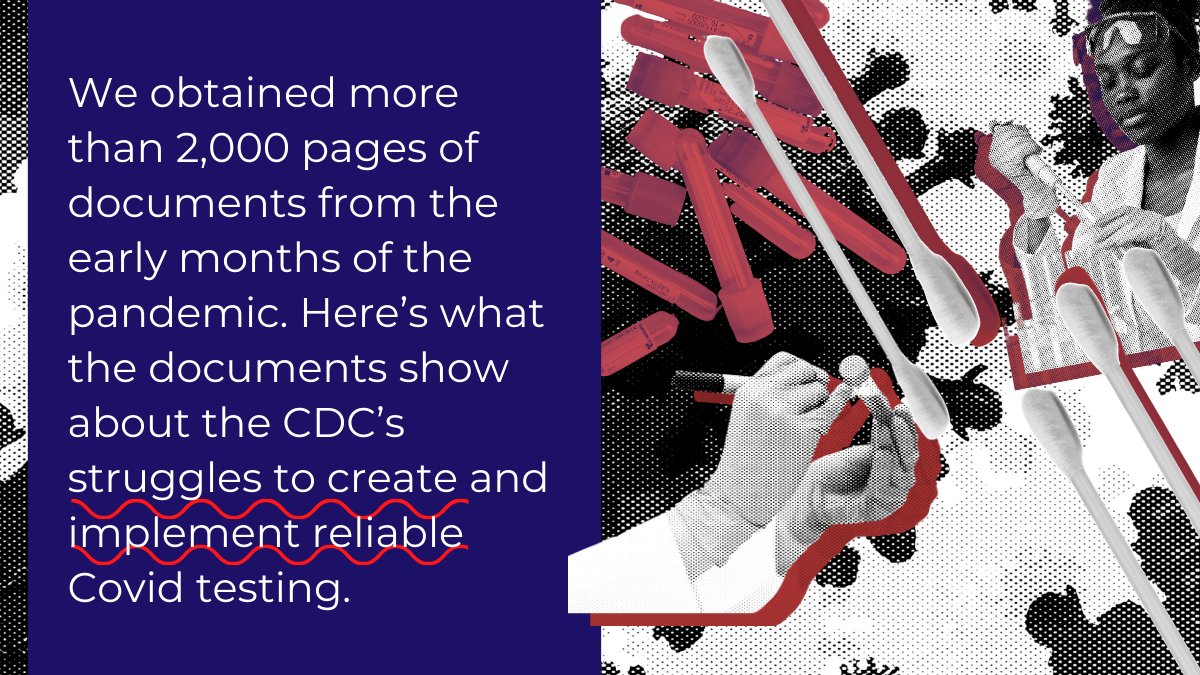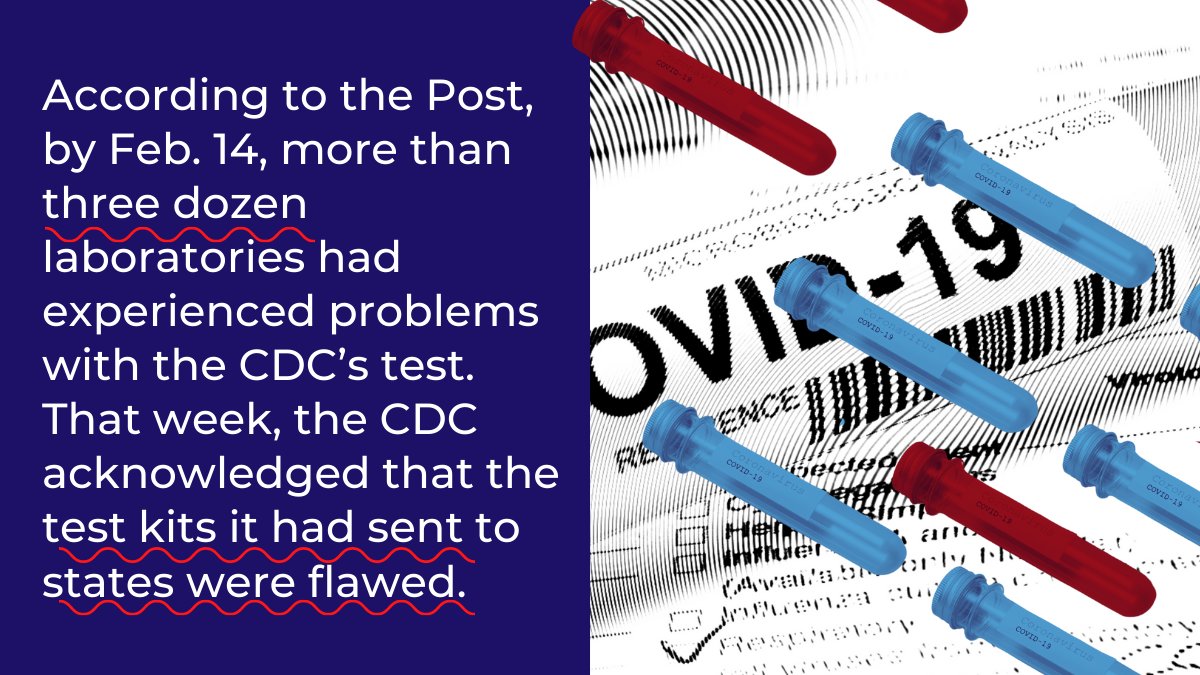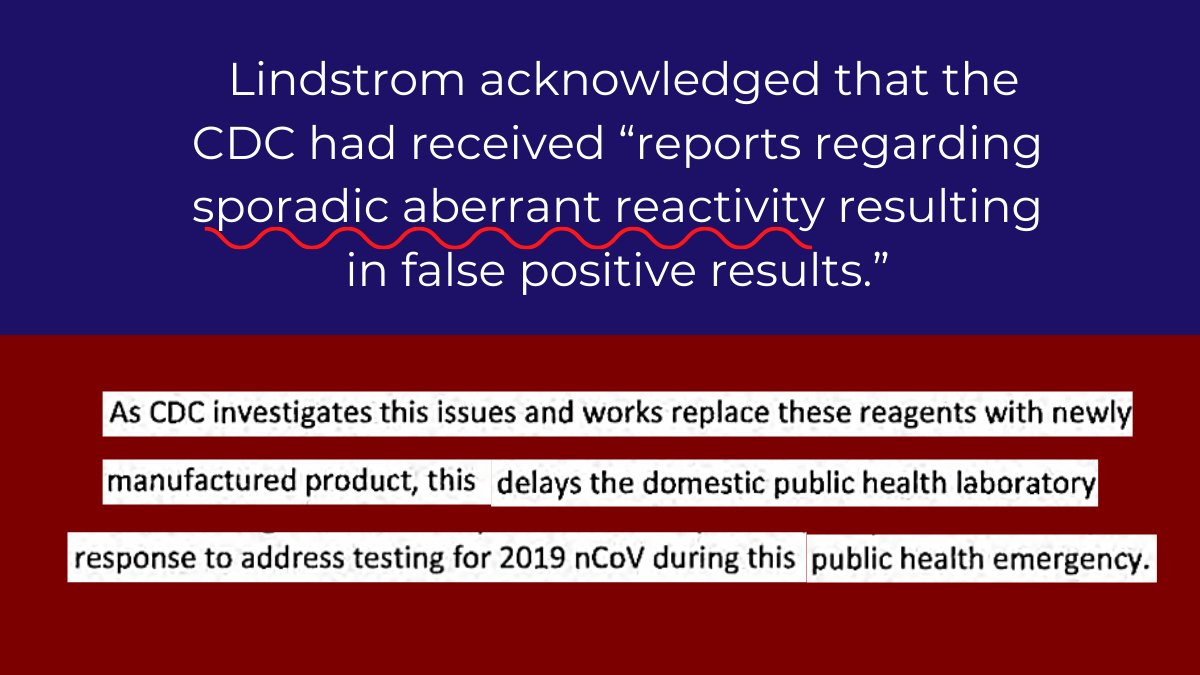We obtained more than 2,000 pages of documents from the early months of the pandemic. For this #FOIAFriday, here’s what the documents show about the CDC’s struggles to create and implement reliable Covid testing.
americanoversight.org/new-documents-…
americanoversight.org/new-documents-…

On Feb. 4, 2020, the FDA granted emergency use authorization to the CDC’s Covid-19 test, which was the first coronavirus test authorized in the U.S. The test was created by a team headed by Stephen Lindstrom, who had helped create earlier flu tests.
The test’s N1 and N2 components focused on identifying SARS-CoV-2. Its N3 component was meant to identify a wider variety of coronaviruses. The documents we obtained echo earlier reporting from the @washingtonpost that this last component had problems.
washingtonpost.com/investigations…
washingtonpost.com/investigations…
In a Feb. 8 email, Lindstrom encouraged states to begin testing for possible Covid-19 cases. But that same day an official from the California Department of Public Health sent an email about potential issues with the tests. 

The official wrote, “We are hearing from some local PHLs [public health laboratories] that they are picking up hits with the N3 target.”
documentcloud.org/documents/2068…
documentcloud.org/documents/2068…

The next day, a CDC senior adviser for laboratory science said that she had “heard from a few that they are having trouble with the test” and expressed concern about whether the CDC was addressing these complaints.
documentcloud.org/documents/2068…
documentcloud.org/documents/2068…

As the Post reported, the CDC tried to fix problems with the N3 component. On Feb. 11, Lindstrom circulated an email with a draft message for U.S. laboratories. He wrote, “FDA gave concurrence yesterday evening to allow CDC to distribute a new N3 assay component as a resolution.”
But according to the Post, by Feb. 14, more than three dozen laboratories had experienced problems with the CDC’s test. That week, the CDC acknowledged that the test kits it had sent to states were flawed. 

On Feb. 16, FDA officials asked for more info about the tests. Lindstrom acknowledged that the CDC had received “reports regarding sporadic aberrant reactivity resulting in false positive results.”
Learn more about what we found in the over 2,000 pages of documents here:
americanoversight.org/new-documents-…
americanoversight.org/new-documents-…
• • •
Missing some Tweet in this thread? You can try to
force a refresh










